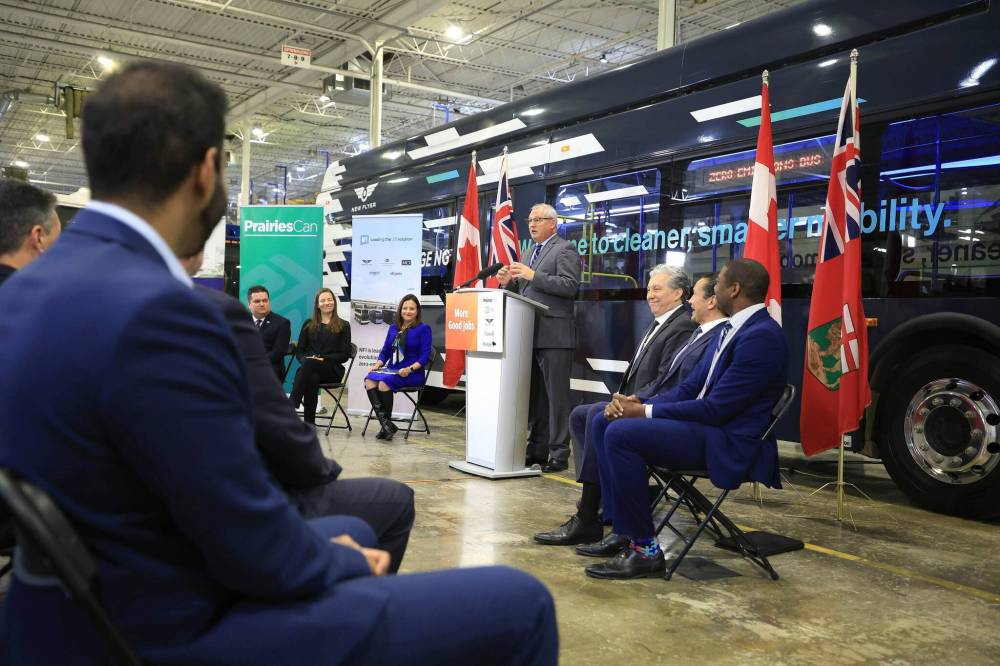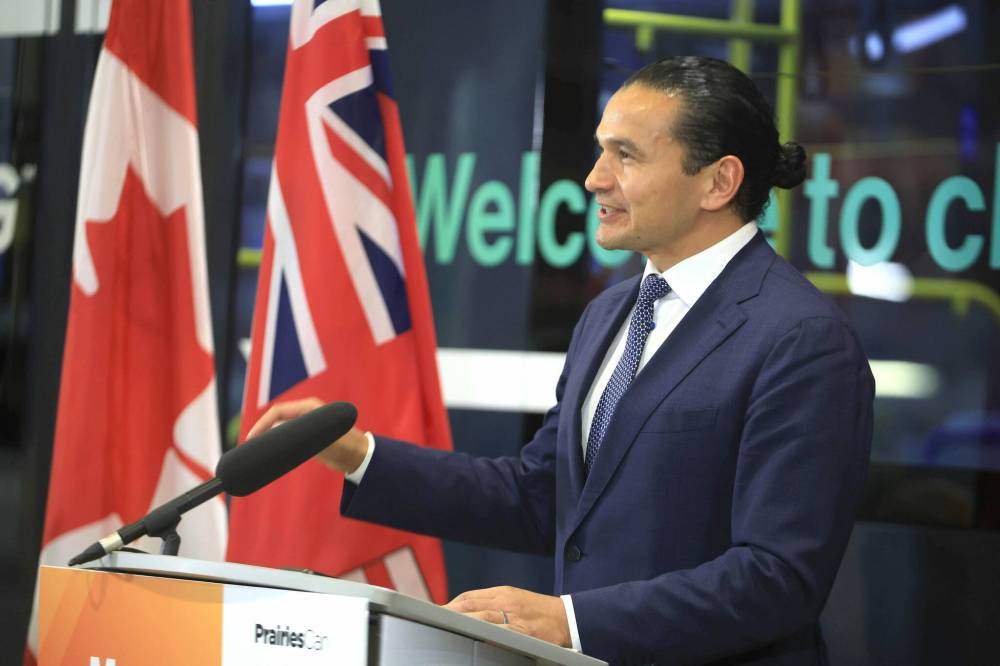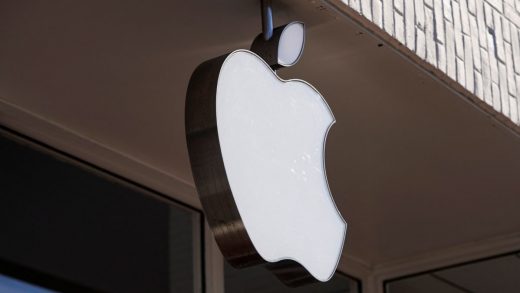
NFI Inc.’s position as one of the major drivers of the Manitoba economy was underlined on Friday with the announcement of a $75-million expansion to allow the company to complete bus construction in Winnipeg for its Canadian transit authority customers.
The company is receiving a $15-million no-interest loan from the federal government and a $10-million grant from the province to help with the project that will create at least 250 new jobs in Winnipeg.
As well, the province will forgive interest for two years on a $50-million loan to NFI that was provided in December 2023, which will add another $13.4 million in provincial support.

Ruth Bonneville / Free Press
NFI CEO Paul Soubry announces the company is expanding manufacturing with $38 million in new funding from the federal and provincial governments Friday.
The new facility will be built in 60,000 square feet of new space it will lease in the building that NFI runs its parts business out of, across the Transcona street from its main plant.
Because of increasingly onerous “Buy America” requirements on products purchased with U.S. federal government support by American municipalities, it has meant NFI has migrated a lot of its production south of the border to facilities in Minnesota and Alabama.
For the past 15 years only the bus shells were manufactured in Winnipeg and then shipped for completion into the U.S., including the buses built for Canadian transit authority customers, which represent about 10 per cent of the total number of units shipped.
The new operation is expected to start handling product later in 2025 and to be fully operational, producing 240 bus units per year, by 2027.
NFI is the largest bus maker in North America and is the leader by far in the market when it comes to zero-emission or low-emission buses that now make up more than 20 per cent of the buses NFI ships.
NFI CEO Paul Soubry said the project makes sense now because over the past 10 years the Canadian federal government has dramatically increased its funding to municipalities to allow for a more consistent and sustainable order flow from Canadian customers.
Soubry said when the project was first conceived and pitched to the provincial and federal governments in January, both Premier Wab Kinew and Dan Vandal, federal minister responsible for PrairiesCan, were immediately supportive.
“We are willing to do this kind of deal-making especially when we had the opportunity to lean in to a home-grown success story,” said Kinew who along with Vandal and city councillor Jeff Browaty pulled into the press conference on board a new battery-electric New Flyer Xcelsior bus.
Kinew said the province often hears from companies who want large provincial concessions to set up shop in Manitoba.
“At the same time we have home-grown, world-leading success stories that can create more jobs for people here in Manitoba with a far smaller investment of public resources,” said Kinew. “This was an easy project for us to say yes to. The fact that there is a healthy dose of Canadian pride along with it, that is the cherry on top.”
NFI has been through a tough few years during the pandemic and after. It was hit hard by the broken supply chain which required it to put units on hold waiting for parts to arrive.
During that time, deliveries were cut in half from 6,000 units to 3,000 and the company lost about $500 million and temporarily laid off about 2,000 workers throughout its operations in Winnipeg, the U.S. and the U.K. It was also forced to renegotiate bank loans on several occasions.
But Soubry said its workforce is almost fully back to pre-pandemic levels and most of the supply chain issues are in order.

Ruth Bonneville / Free Press
Premier Wab Kinew at the NFI expansion announcement, Friday.
He said, “We told our board and our bankers that we were not going to cut our staff in half. We still had strong orders. We needed to keep our people and our culture in place.”
The company now has a backlog of close to 15,000 units worth about $12 billion.
So despite temporary setbacks — and a share price that is about one-third of the value of what it was before the pandemic — the company remains well-positioned for future prosperity. Its market leadership position has been enhanced during that time by the closure of more than a couple of its competitors.
It’s partly why the company was the first recipient of a $10-million no-interest loan through the $100-million Framework to Build a Green Prairie Economy, last December.
Vandal said the federal government’s additional support for the company is about its willingness to support that kind of innovation.
“This points to a bright future,” Vandal said. “As the world changes and demand for zero-emission technologies accelerates, I believe we can compete and we can win.”
Both he and Kinew also spoke about the importance of creating well-paying blue-collar jobs as another reason for their support.
Kinew said he has taken to heart advice he got from a successful investor who said he doesn’t invest in machinery or equipment or factories, but in the people behind it.
He actually thanked the company for the opportunity to invest.
“The leadership from Paul Soubry and the executive team at NFI Group have the foresight to skate to where the puck is going to be in the future for the company,” he said. “Absolutely we are investing in the right group of people in Manitoba. I want to say to everyone who puts in a hard day’s work here — you are building something special.”

Martin Cash
Reporter
Martin Cash is a business reporter/columnist who’s been on that beat for the Free Press since 1989. He’s a graduate of the University of Toronto and studied journalism at Ryerson (now Toronto Metropolitan University). Read more about Martin.
Every piece of reporting Martin produces is reviewed by an editing team before it is posted online or published in print — part of the Free Press‘s tradition, since 1872, of producing reliable independent journalism. Read more about Free Press’s history and mandate, and learn how our newsroom operates.
Our newsroom depends on a growing audience of readers to power our journalism. If you are not a paid reader, please consider becoming a subscriber.
Our newsroom depends on its audience of readers to power our journalism. Thank you for your support.


